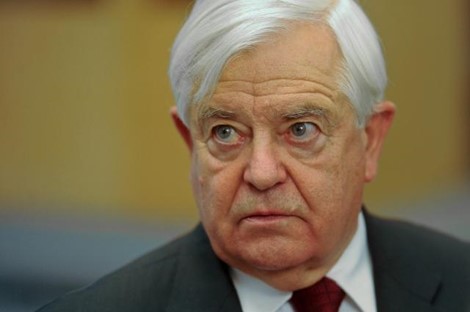Former President of the Republic, Milan Kučan, is upset, and he quickly made a statement for the Slovenian Press Agency, in which he expectedly attacked the move of the current government, which “removed the ‘confidential’ classification from his report on the possible further developments in Bosnia and Herzegovina, from the year 2011.” He said that with this move, the government is trying to divert attention from the allegations related to the non-paper, because of which the transitional media severely attacked the current Prime Minister Janez Janša and unfairly attributed the distribution of the non-paper to him. The events coincide with the period of extensive export of fake news to foreign countries and back, which is happening just before Slovenia’s Presidency of the Council of the European Union. The non-existent document is said to speak about the division of the state of Bosnia and Herzegovina, and the author of the idea is said to be Kučan, which was already pointed out some time ago by the Bosniak religious leader Mustafa Cerić.
“I see the government’s decision to remove the label ‘confidential’ from the document as a diversion of attention from the accusations against the Prime Minister, claiming that he was distributing the non-paper on changing borders in Southeast Europe,” former president Milan Kučan told the Slovenian Press Agency. The agency also wrote on its website that the Government of the Republic of Slovenia, at its session on Thursday, removed the label ‘confidential’ from the document marked Z-103-34/2010, which is dated the 26th of January 2011. It is a document “prepared by Kučan, who held the role of the special rapporteur for BiH at the time, for the then-Prime Minister Borut Pahor.”
Kučan tried to defend himself by saying that this document had previously already been published in the book of his in-house historian Božo Repe and that it is not confidential. He added that the document from 2011 is actually a report he prepared for Pahor, which was supposed to address the issue of BiH at a meeting of the EU Council. “It was prepared with my views on the problem that BiH is living with. It is ten years old. In it, I mainly talked about the fact that the EU should try much harder for BiH, which, as I wrote, is a dysfunctional state. It should be made functional first so that it would then be able to negotiate the conditions for joining the EU.”
The former president also believes that his report cannot be compared to the non-paper, which has recently (as is well known) been so vigorously reported on by the media outlets close to the transitional centres of power (as a means of fighting the government), and which supposedly also refers to the change of borders in the Western Balkans. According to the former president, not even a word of the 2011 document mentions the possibility of changing borders. At the same time, he also claims that his document cannot be connected to the non-paper.
The former President of the Republic was exposed by Mufti Cerić
When reading the former president’s claims, a banner from the protest Rešimo Slovenijo (Let’s Save Slovenia) that happened in 2019 comes to mind: “Both Kučan and lies have short legs,” which is a translation of a Slovenian idiom – “A lie has short legs,” meaning that lies and untruths are always quickly revealed and exposed. This time, the former President of the Republic was exposed by the long-standing great mufti of Muslims of Bosniak origin, Mustafa Cerić. He recently published an open letter on the Saff.ba web portal, addressed to the former president Kučan. The letter was related to the recent “non-paper” affair, for which Cerić is convinced that Kučan is actually involved in it.
A decade ago, the former president was the Slovenian government’s special envoy for BiH, and Pahor was the Prime Minister at the time. And this “non-paper” was supposedly created back then already (in 2011), and the then-Prime Minister tried to push it on the Brussels and American diplomats, but without success. Apparently, Cerić believes that the “non-paper” was in fact created in 2011, by Kučan as the special envoy to BiH, as Kučan allegedly asked political elites there if they still wanted to live in a country as it was created after the Dayton Agreement in 1996 when the four-year bloody war ended.
The transitional networks are behind the “new” non-paper
Kučan wrote the following in the classified report: “We need to shed light on what should be done in the event that political elites reject life in Bosnia and Herzegovina as a common state and its European future. It is better to divide it peacefully, under the control and intervention of the international community, than to continue to strengthen the mutual blockades, escalating conflicts and backwardness in the economic and social development. In this case, the international community must play an active role in the event that the break-up of Bosnia and Herzegovina has consequences for relations and peace, as well as for the security of the former Yugoslavia and the wider South-Eastern Europe.”
In other words: since Cerić did not make any of this up, it is clear that the setting of new borders in the Balkans is Kučan’s and not Janša’s invention. This means that the “non-paper” exists, but it is much older and has been slightly reworked, and the political underworld exported it to BiH and then back to Slovenia for domestic political purposes – just like what happened with the Patria affair in Finland. The main operative in both scandals was Drago Kos. In the conclusion of his letter, Cerić accused Kučan of high treason, because with his position in the report, he actually offered Bosnia into the hands of both Greater Serbia and Greater Croatia nationalists. You can read Mufti Cerić’s letter in its entirety HERE.
Domen Mezeg


